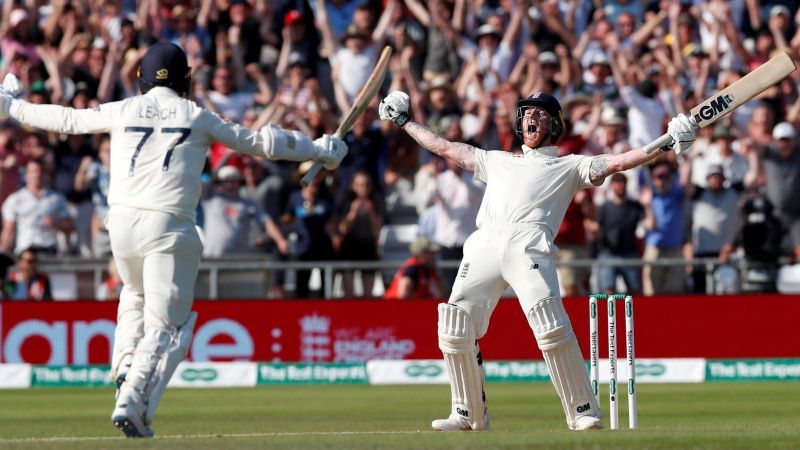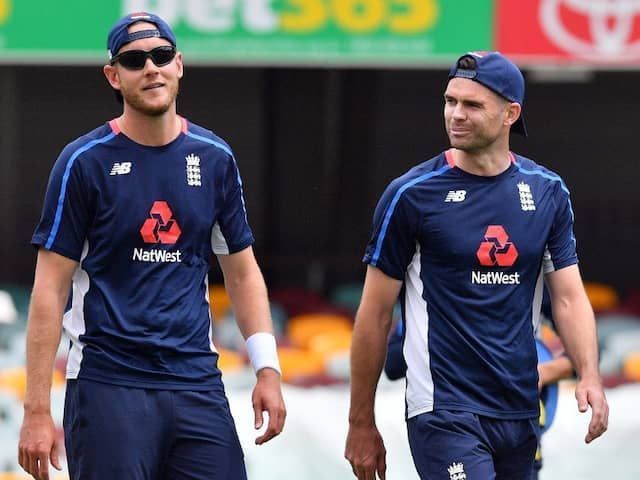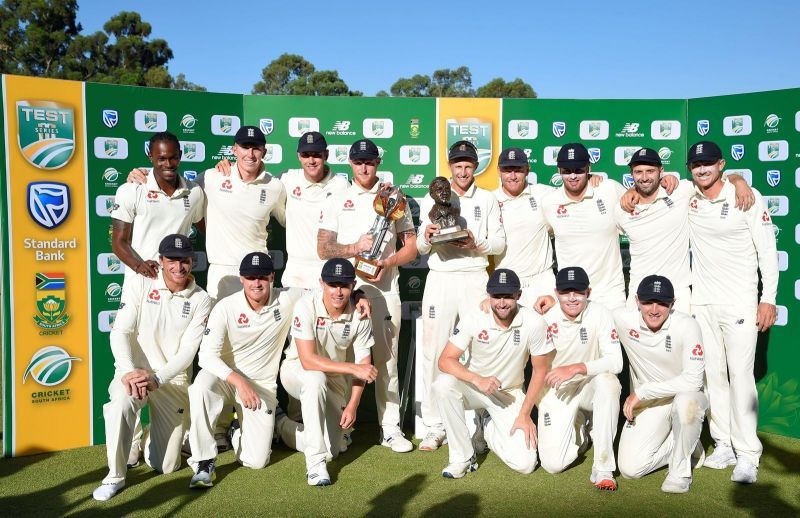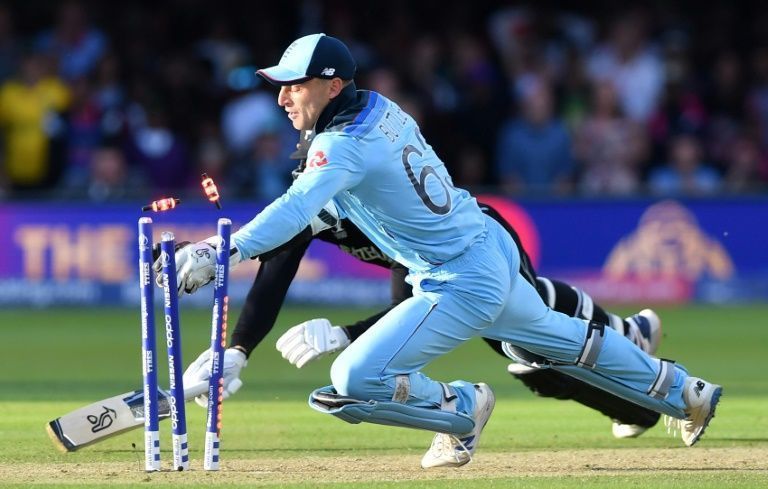
5 reasons England could dominate international cricket for a while

If you didn't follow international cricket during the first decade of this century, there are chances that you may not know about an all-conquering Australian team that dominated the game after their win at the 1999 World Cup. Fast forward two decades, England could script a similar degree of dominance in the sport after their 2019 World Cup triumph.
Between their 1999 World Cup and 2009 Champions Trophy victories, Australia were near invincible. In this period, the team did not lose a 50-over World Cup match and lost only four-Test series (all by a margin of one match only). They made it to the knockout stage in every Champions Trophy tournament they did not win, and their other losses could be counted on the fingertips.
Other than a handful of losses suffered against quality opposition, Australia dominated Test and one-day cricket in this period like few else. Their dominance was regardless of the conditions and challenges that came their way; Australia won tournaments anywhere they went. A T20 World Cup title, though, was the only major trophy that eluded the Australian juggernaut.
During this period, there were other teams who were dominant too but only in spurts. South Africa dominated Test cricket for a while. India enjoyed a purple patch in limited-overs cricket between 2007 and 2013 while West Indies became the only team to win two T20 World Cups.
Since the 2007 World Cup, the 50-over World Cup has been won only by the home team, a trend that England continued in the 2019 edition of the quadrennial competition.
It won't be a surprise if England now go on to dominate all the three formats in the near future. However, considering the way the balance of power in international cricket has shifted in recent years, it may not be a surprise if England are not able to sustain their success and slide down the ranks.
But it is more likely that England could dominate world cricket in the coming years. Let's have a look at five reasons why that could happen.
Five reasons England could dominate world cricket:
#1: England play a fearless brand of cricket

After their heartbreaking exit in the group stage of the 2015 ICC World Cup, England have never looked back. They took the humiliation of their early ouster quite seriously and were hell-bent on removing their image of a passive limited-overs side. Under the captaincy of Eoin Morgan, England opted for an attacking brand of cricket.
In their very first ODI series post that World Cup campaign, England did away with veterans like Ian Bell, James Anderson and Stuart Broad. With James Taylor unable to continue for a longer period, England stuffed their batting lineup with more attacking batsmen such as Jonny Bairstow and Jason Roy to go with the likes of Alex Hales, Ben Stokes, Joe Root and Eoin Morgan who were already there.
Moeen Ali, freed from opening duties, went on to form an attacking spin partnership - a rarity for England - with Adil Rashid. Liam Plunkett made a comeback after ages to benefit England with his experience. Over a period, with bowlers like Jofra Archer, Mark Wood and Chris Woakes - England mastered their death bowling as well.
Moeen Ali's 53-ball century while batting at number seven against West Indies in Bristol in 2017 meant that England demonstrated their firepower to come out of any situation with a bang. This attacking style carried over to their T20 as well as Test cricket.
England were now capable of making comebacks in series where they began poorly or stumbled in the middle. There are many such instances in this regard: the 2018 ODI series at home against India, the 2019 World Cup, the 2019 Ashes, the 2019 T20 series in New Zealand, the 2019-20 Test and T20 series in South Africa and the recently concluded Test series against the West Indies.
#2: England have different teams for different formats

England players like James Anderson, Stuart Broad, Dom Sibley, Rory Burns and Zack Crawley only have to worry about Tests. Similarly, others like Jason Roy, Adil Rashid, Mark Wood and David Willey don't need to worry about the longest format. David Malan, Tom Curran and Chris Jordan have become T20 specialists.
Such flexibility allows England's all-format players like Ben Stokes, Joe Root, Jos Buttler, Jonny Bairstow and Jofra Archer a lot of comfort as well. England now don't need to worry about overburdening their squads during tight schedules as they are always willing to rotate their personnel.
With most teams still looking to settle their batting, bowling and fielding departments in various formats, England look like the only side who seem to have a present, as well as a future plan of action in all the three formats of the game. England now have such an edge that most teams take time to find their feet against them.
#3: England have developed a mastery of all conditions

England had an inauspicious start to their 2018 season. After being overwhelmed in the Ashes series in Australia, England couldn't win the ensuing Test series in New Zealand either. But between these two series, England enjoyed a convincing ODI series win in Australia and ended their tour of New Zealand with another ODI series victory as well.
In the home season, England won the ODI as well as Test series against top-ranked India. Later that year, they whitewashed Sri Lanka in the three-match Test series away from home.
2019 was a fabulous year for England as they won their first 50-over World Cup. They managed to draw the Ashes against visiting Australia who looked like they would win the series. And after losing the first Test in South Africa, England turned the tables around to win the series 3-1.
Yes, England did lose a Test series in West Indies and another in New Zealand in 2019. But with the World Test Championship now adding context to every series, you won't find an easy to beat-England side anytime in the near future.
With the ICC ODI Championship looming, England are likely to up their one-day game further.
Since the ODI tour of India in January 2017, England only lost in the semifinal of the 2017 ICC Champions Trophy and a one-off ODI against Scotland away; they won every other ODI tournament they competed in. In fact, England have won their last five T20 series as well.
#4: England have more than decent backup players in all formats

With England resuming cricket post the COVID-19 pause, they will have an early advantage over other teams who haven't played any cricket for months now. By the end of next month, England would have played enough Tests, ODIs and T20s against teams like Pakistan, West Indies and Ireland to get into the groove.
The best thing England have done even in this period is the management of players' workload. In normal circumstances, England have the longest county season. They have a domestic T20 tournament as well as a one-day tournament. Their players are open to playing T20 cricket around the world, but still manage to avoid too many injuries thanks to player rotation and presence of decent backup options.
The cool weather conditions help many English players avoid fatigue. This is in sharp contrast with contracted Indian cricketers - all of who are required to play in the six-week-long Indian Premier League in the scorching summer heat.
And even if key England players participate in such tournaments - as has been the case in various seasons of the IPL - they have their backups ready.
By the end of 2016, the opening partnership of Alex Hales and Jason Roy looked set in the England ODI lineup. But the team persisted with opening with Jonny Bairstow, a move that yielded rich dividends when Hales was left out of the 2019 World Cup squad.
England haven't had a stable opening partnership in Tests for a long time since Cook and Strauss. After Cook's retirement and Jennings' slump in form, Rory Burns and Dom Sibley look to have grabbed the opening spots in the longest format.
With England hindered by Anderson's injury just after the start of the first Ashes Test last year, Sam Curran provided decent cover, thanks to a good run that he received the previous summer.
When international cricket resumed after the COVID-19 outbreak, England chose different squads for the Test series against West Indies and the subsequent ODI series against Ireland.
In limited-overs cricket, England have a relatively younger team, compared with other top teams such as India, Australia, New Zealand, Bangladesh and even South Africa.
#5: England now know how to get over the line

The final over of the World T20 Final in 2016 was not much different from the fate England suffered in most ICC tournament finals since 1987.
Be it the finals of the 1987 World Cup, the 1992 World Cup, the 2004 Champions Trophy, the 2013 Champions Trophy or the 2016 World T20, England had made it a habit of throwing away matches they could have won in the final few overs.
But come 2019, England decided to turn this around. After defeats to Pakistan, Sri Lanka and Australia, pre-tournament favourites England were on the brink of an exit from the 2019 World Cup.
They had to win every remaining match, that included clashes with table toppers India and New Zealand. England humbled both the teams. They then proceeded to avenge their group stage loss to Australia in the semifinal, on the same ground Australia had upset South Africa in a thrilling World Cup last-four clash two decades ago.
In three days time, England beat New Zealand in exactly the same way Australia 'beat' South Africa in 1999 - but this time it was a World Cup final.
Ben Stokes surely learnt a lot from the 2016 World T20 - more from the India-Bangladesh match than the final over he bowled in the final.
This experience enabled Stokes to fashion a remarkable Test win in Headingley, despite England needing 73 runs, with only the last-wicket pair at the crease. In a similar fashion, England went on to win a tight T20 series against New Zealand later that winter.
England fought back to win an away Test series 3-1 in South Africa after losing the first game. The visitors then won the ensuing three-match T20 series after losing the first match. South Africa didn't yield an inch, especially in the last two matches, but England found a way to win the two nail-biters.
After losing the first Test match against West Indies in the current season, they came back to win the remaining two matches despite a full day being lost to rain in both games.
Even in the first two ODIs of the ongoing series against Ireland, England managed to secure a series win despite top-order collapses while chasing in both the matches.